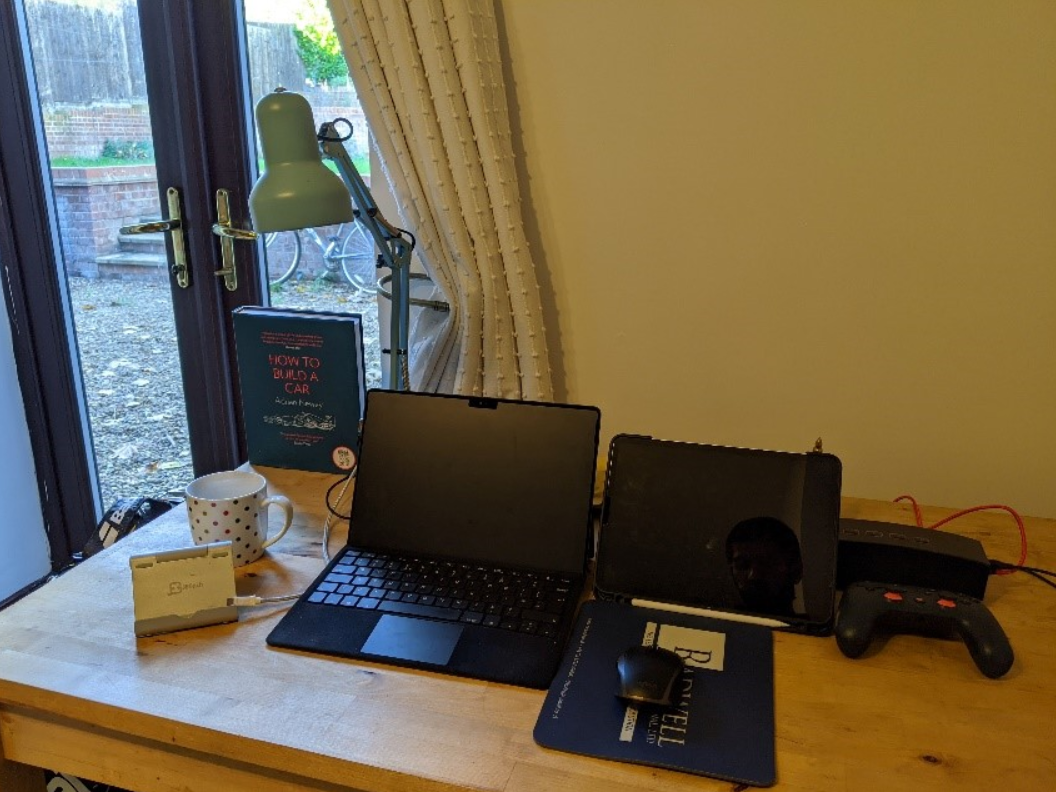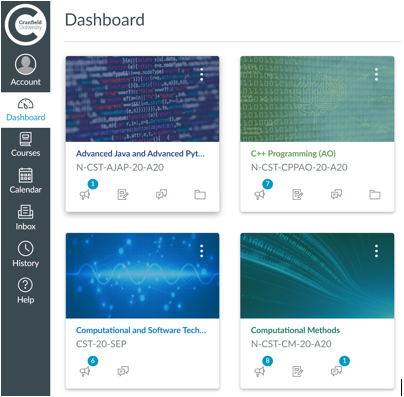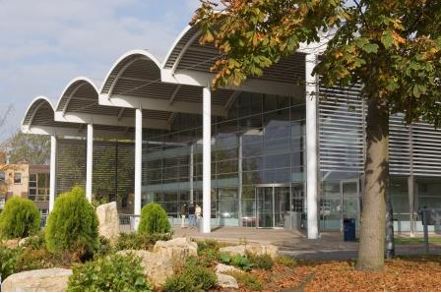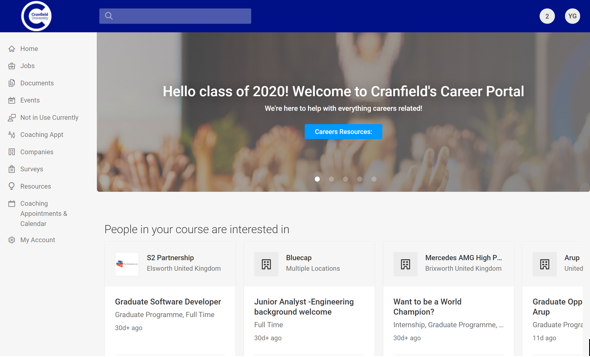A beginner’s guide to online learning – my Cranfield MSc
29/10/2020

Welcome back to the next part in this series of blogs! In this chapter I tell you a bit about my first few weeks at Cranfield and along the way, share with you a day in the life of a student on the Computational and Software Techniques in Engineering MSc programme! Oh, and this one is going to be a long one.
As of 23 October 2020, I have completed my first month of learning at Cranfield University and it has been a fast-paced and enjoyable time so far!
An online course induction took place on the 28 September to brief all students about the course and the support structures such as the careers advice centre and the online library. It was also at this event where I (virtually) met the staff and my fellow course mates for the first time. There are approximately 70 students on this MSc, of which eight are taking the Computational Intelligence for Data Analytics option with me. The entire cohort is very diverse with students from all across the globe. Many of them are even coming from industrial backgrounds with several years of experience working in industry and aspiring to broaden their skillset as part of a more digital push in their career.
The staff have so far done a fantastic job at accommodating for the fact that many of the international students might be facing delays in obtaining their study visas or would be quarantining as a result of travelling from abroad. All the modules that were taught within the month of October were held online through Zoom and have been made available for students to access at any point. This has gone a long way to ensure that some of my friends, who have not been able to reach Cranfield due to travel restrictions, have not been impacted in any way.
The first point of contact for all students on my course is our Student and Academic (SAS) Lead, Taryn. She has been very cooperative, continually sharing relevant information with students and organising online lectures for the different options within this MSc. Dr Irene Moulistas is the Course Director and is very approachable and supportive of students like me who come from backgrounds less familiar with programming. All students who needed assistance with certain aspects of the course were provided with a pre-work package before the course began to get everyone up to speed with the content that would be covered on the course.
The modules that I have covered so far have been taught by Dr Peter Sherar who is a highly experienced External Lecturer at the University having taught this course for over 30 years. We have covered object oriented programming in C++ and Java, and data structure organisation within Python. These modules are structured in a way to familiarise the students with the respective programming environments as the following modules in machine learning and AI start to better utilise them for the more specific use cases.

Although a number of MSc courses within the University have started to move to face-to-face lectures, my studies have been online only for the time being. This method has given all students an equal learning platform during these initial months while students have begun to slowly move into Cranfield. Some are only just arriving in the UK and are getting used to being in a new country. Studies are planned to resume in a safe way with in-person lectures from November onwards as most students undertaking the course will have settled in Cranfield by that time.
I have been having online lectures every day from 9.30am onwards through the Zoom app and all the lecture notes, materials, exercises and recordings are available to all students on our personalised Canvas learning environments. On an average day, I plan to get to my desk with my cup of tea by about 9.25am to join the Zoom call and greet Dr Sherar and everyone else in the virtual class. The classes usually begin with a quick recap of what was taught in the previous lesson and then we move on to new topics within the language that is being taught. A great feature about all lessons so far is that in between the lessons, all students get assigned to virtual breakout rooms to work on practice tasks to test the concepts that we had just learned. In my opinion, that is a fantastic way to learn the practical aspects of what is being taught to us and also allows us to build team working skills along the way. We are then given the opportunity to review our solutions with the entire class and clarify any issues we faced along the way.
I was initially a bit concerned about the lack of interaction in an online only environment, however, I was happy to be proved wrong and notice a healthy amount of discussion taking place during all sessions. As we have now gotten to the closing point of these foundational modules, the class has been assigned a mock assignment which aims to give all students an initial impression of what the upcoming module assignments would feel like. The feedback from this mock assignment would help all students better understand what they can improve in their future work and what aspects of their work would require a stronger emphasis.

To help with coursework and the thesis at the end of the degree, students have access to a massive catalogue of online and physical books, journals and magazines. Majority of the physical copies are located at the Kings Norton Library which also has some study spaces that are currently available to students. The spaces can be reserved through an online booking system and I was happy to see a good number of socially distant and accessible study spaces available to students.

As a master’s student I am already starting to think about my future and prospects after graduation. I attended the careers talk that was organised by the Career Development Service team to share with us, all the facilities the University provides to its students to support them secure the jobs they want. We have access to a tool called Symplicity, which allows us to not only search for positions we would like to apply for, but also book one-to-one sessions with career advisors at the University. I have a session booked with one of the senior advisors this coming week and am excited to have my CV reviewed and discuss potential job opportunities based on my skillset.

Finally, I wanted to give an update on my extra-curriculars. As I had mentioned in my previous blogpost, I was keen on joining the Cranfield Green Team. I have now attended their introductory meeting where they shared all the projects they are currently working on and the ones they plan to start this year. The topics covered a broad range of areas from solar panel installations, reducing food wastage on campus, all the way to maintaining allotments within the Cranfield campus. I cannot wait to go through the projects in detail over the coming weeks and discuss my involvement with the teams accordingly. I also came across the Cranfield Tennis group on Facebook, where I met some lovely people to practice tennis with! The facilities at the University make it very easy to plan a session and play free of charge on the courts present on campus.
I really hope you enjoyed this deep dive into my first month following the start of teaching! I will keep adding more content to this series as I go along completing the taught modules and move onto my 40 credit group project!
- Read my previous post: My Cranfield MSc – Normalising my journey
- Find out more about the Computational and Software Techniques in Engineering MSc.
Categories & Tags:
Leave a comment on this post:
You might also like…
Company codes – CUSIP, SEDOL, ISIN…. What do they mean and how can you use them in our Library resources?
As you use our many finance resources, you will probably notice unique company identifiers which may be codes or symbols. It is worth spending some time getting to know what these are and which resources ...
Supporting careers in defence through specialist education
As a materials engineer by background, I have always been drawn to fields where technical expertise directly shapes real‑world outcomes. Few sectors exemplify this better than defence. Engineering careers in defence sit at the ...
What being a woman in STEM means to me
STEM is both a way of thinking and a practical toolkit. It sharpens reasoning and equips us to turn ideas into solutions with measurable impact. For me, STEM has never been only about acquiring ...
A woman’s experience in environmental science within defence
When I stepped into the gates of the Defence Academy it was the 30th September 2019. I did not know at the time that this would be the beginning of a long journey as ...
Working on your group project? We can help!
When undertaking a group project, typically you'll need to investigate a topic, decide on a methodology for your investigation, gather and collate information and data, share your findings with each other, and then formally report ...
From passion to purpose: My journey at the Pinnacle of Aviation
By: Sultana Yassin Abdi MSc Air Transport Management, Current Student Born and raised in the vibrant landscape of the UAE, with roots stretching back to Somalia, my life has always been ...






